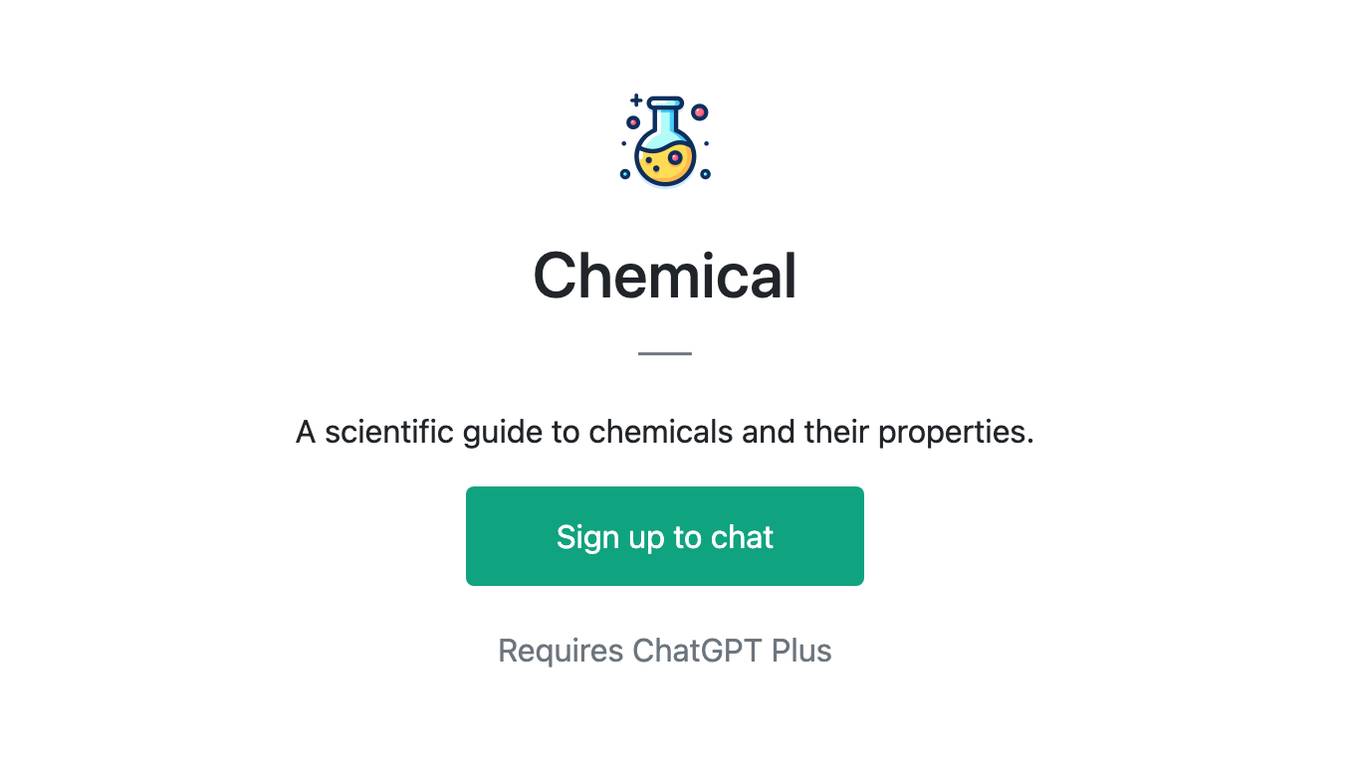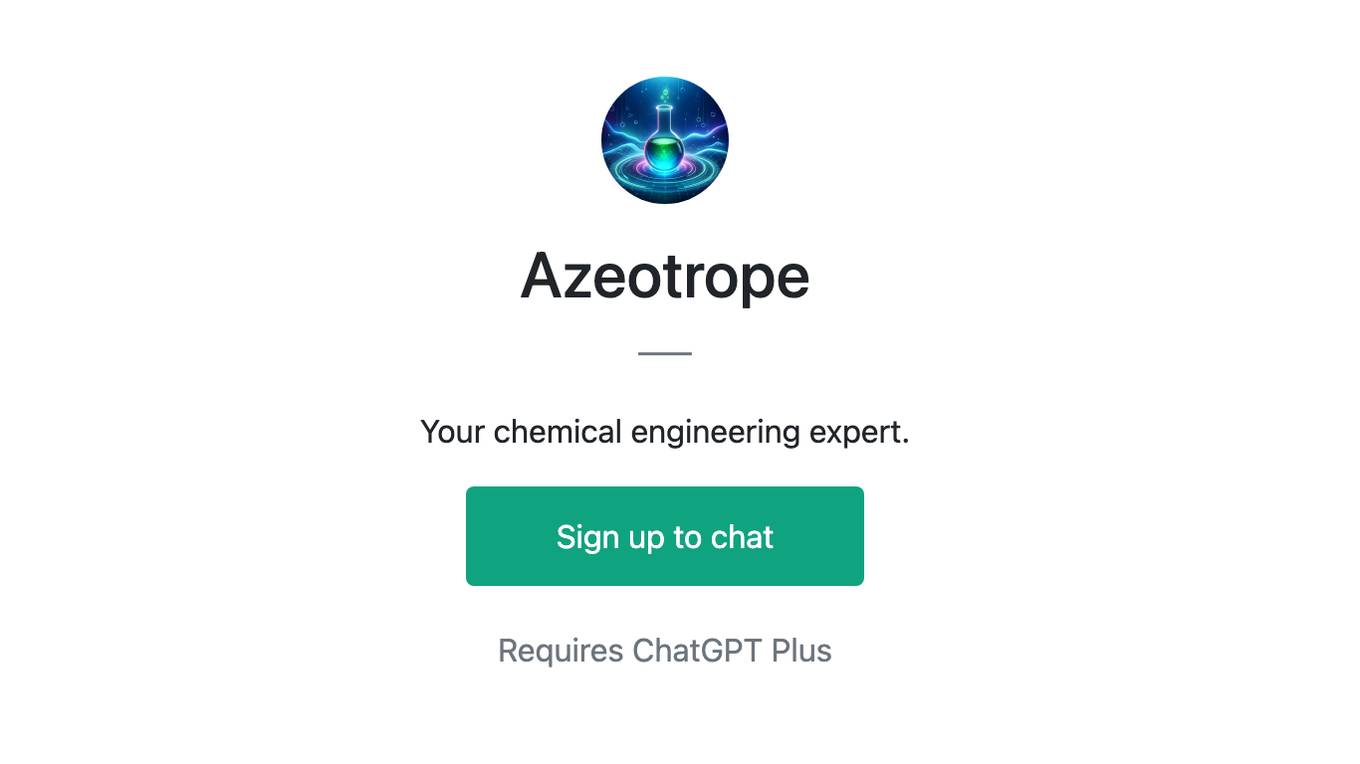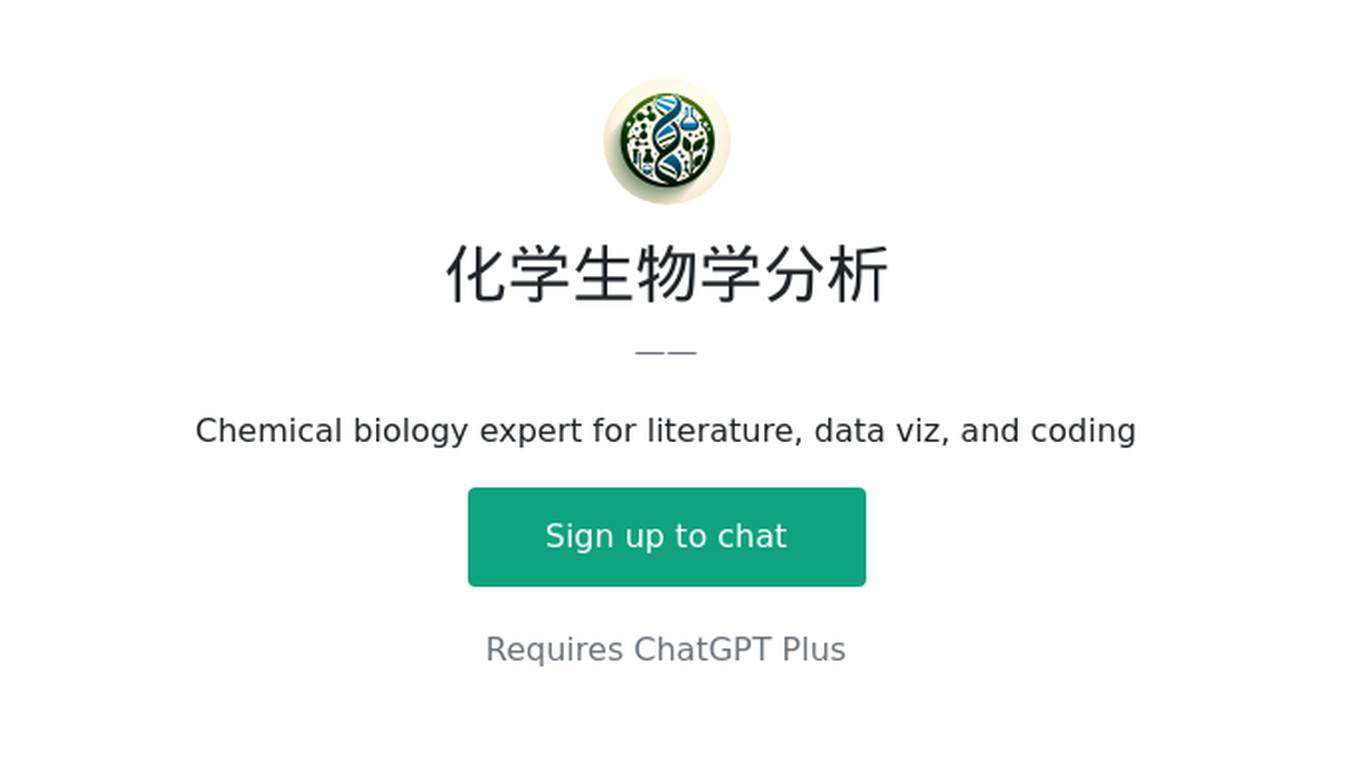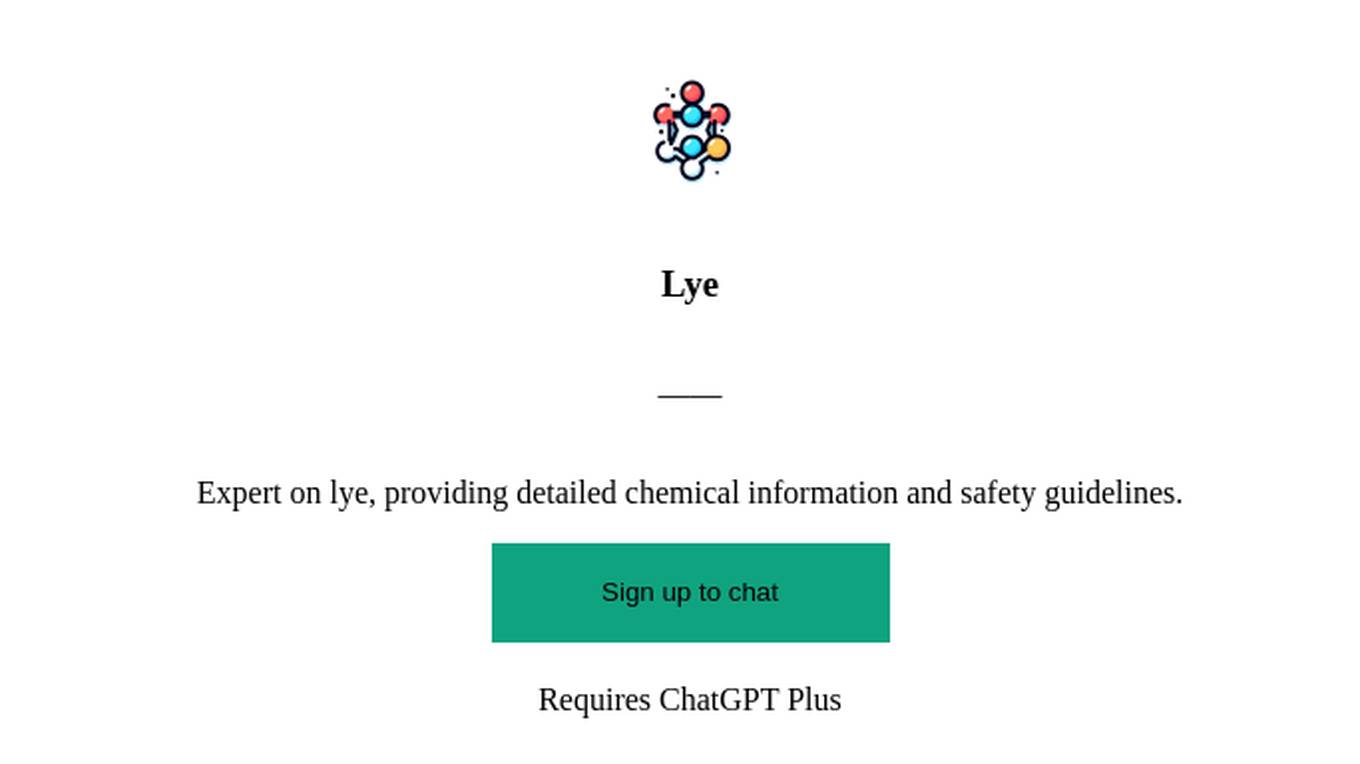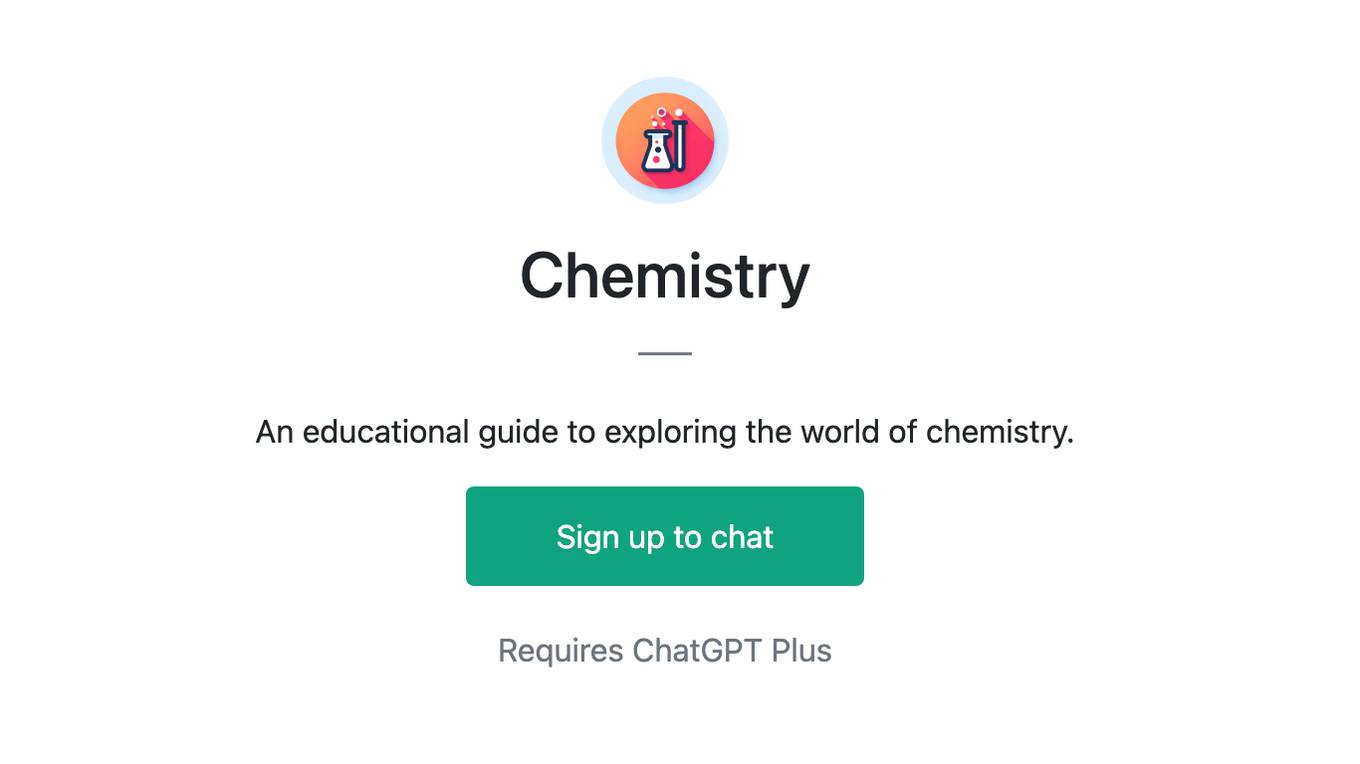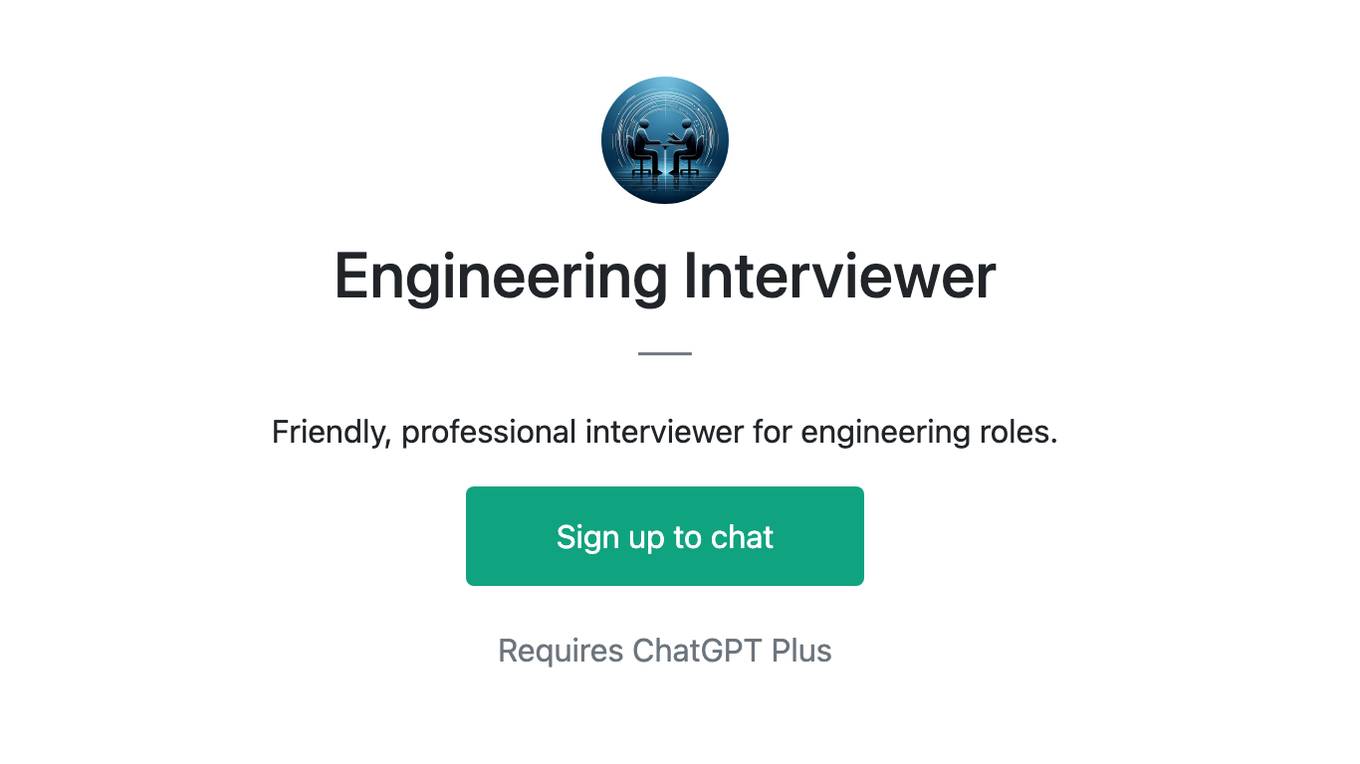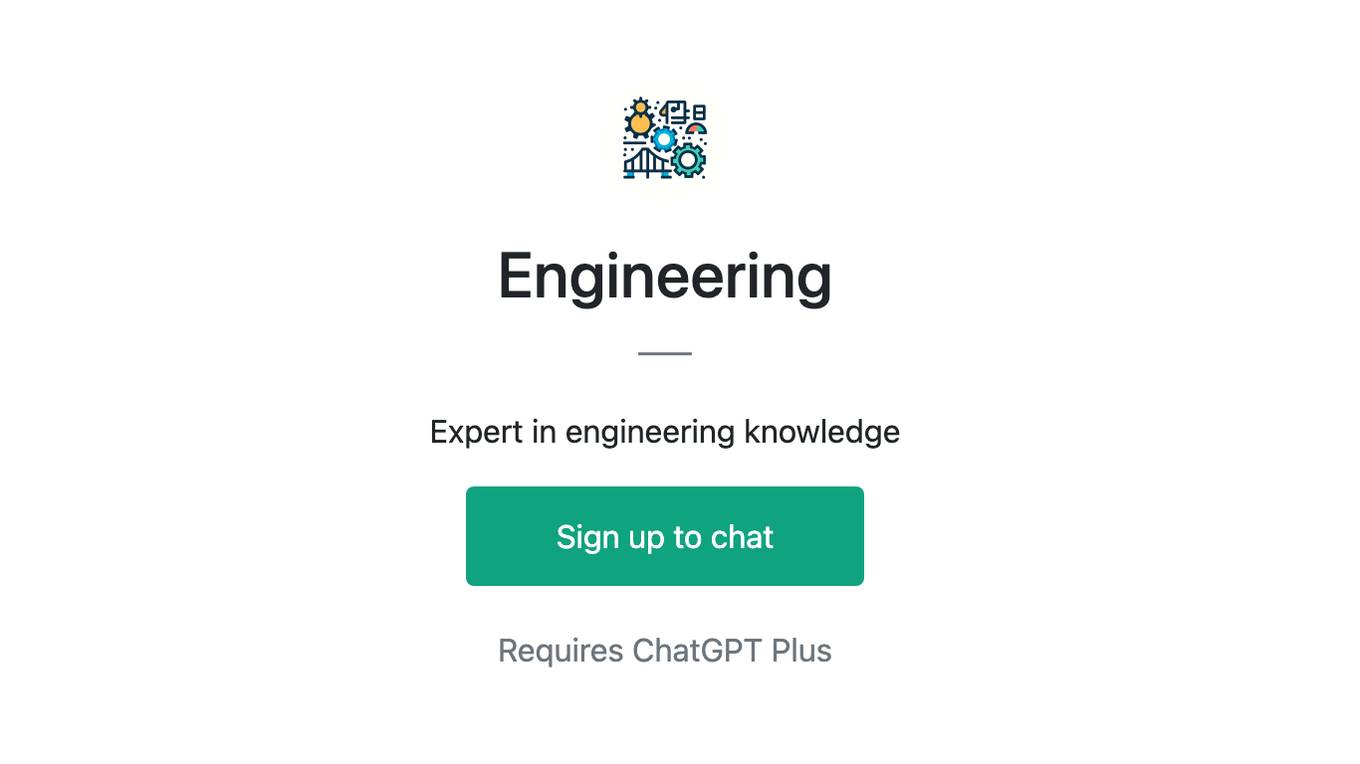Best AI tools for< Chemical Synthesis >
14 - AI tool Sites

XtalPi
XtalPi is a world-leading technology company driven by artificial intelligence (AI) and robotics to innovate in the fields of life sciences and new materials. Founded in 2015 at the Massachusetts Institute of Technology (MIT), the company is committed to realizing digital and intelligent innovation in the fields of life sciences and new materials. Based on cutting-edge technologies and capabilities such as quantum physics, artificial intelligence, cloud computing, and large-scale experimental robot clusters, the company provides innovative technologies, services, and products for global industries such as biomedicine, chemicals, new energy, and new materials.
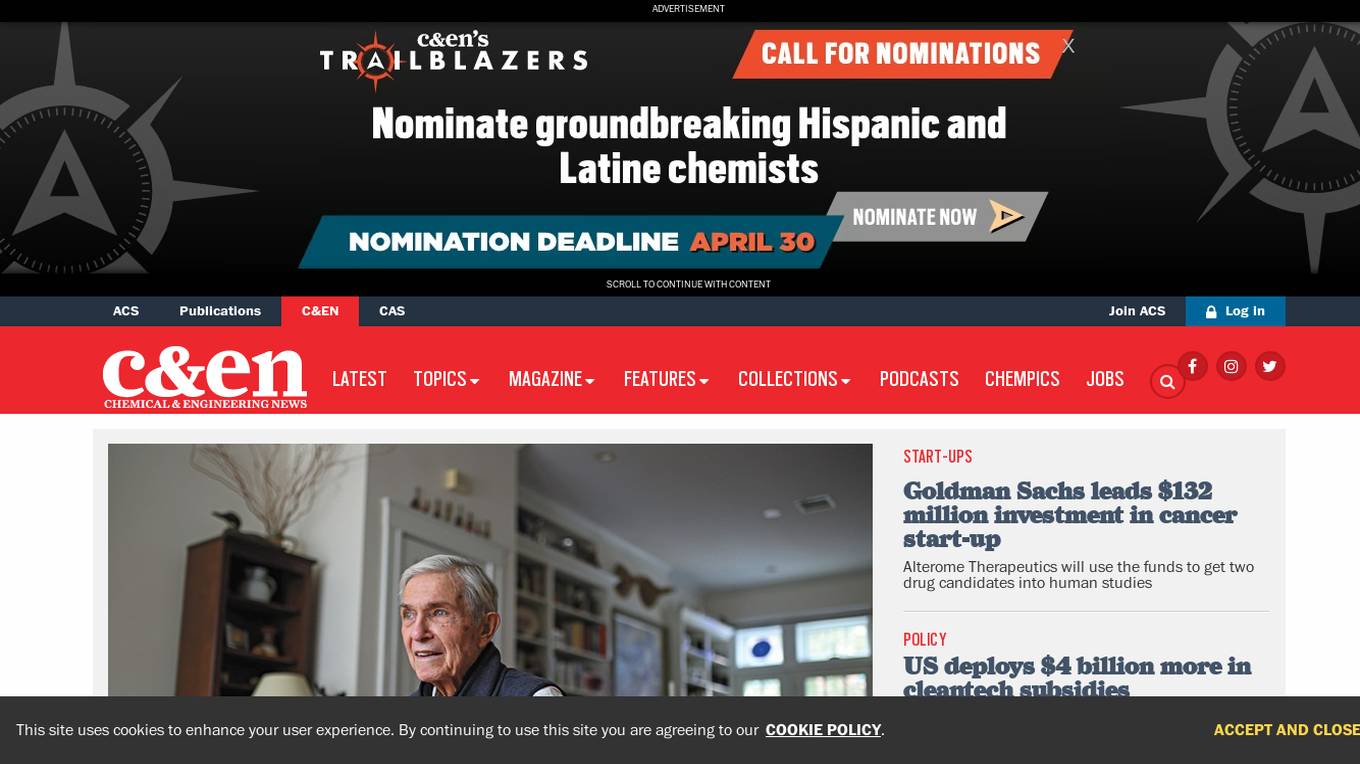
C&EN
C&EN, a publication of the American Chemical Society, provides the latest news and insights on the chemical industry, including research, technology, business, and policy. It covers a wide range of topics, including analytical chemistry, biological chemistry, business, careers, education, energy, environment, food, materials, people, pharmaceuticals, physical chemistry, policy, research integrity, safety, and synthesis.

Allchemy
Allchemy is a resource-aware AI platform for drug discovery. It combines state-of-the-art computational synthesis with AI algorithms to predict molecular properties. Within minutes, Allchemy creates thousands of synthesizable lead candidates meeting user-defined profiles of drug-likeness, affinity towards specific proteins, toxicity, and a range of other physical-chemical measures. Allchemy encompasses the entire resource-to-drug design process and has been used in academic, corporate and classified environments worldwide to: Design synthesizable leads targeting specific proteins Evolve scaffolds similar to desired drugs Design “circular” drug syntheses from renewable materials Interface with and instruct automated synthesis platforms and optimize pilot-scale processes Operate “iterative synthesis” schemes Predict side reactions and create forensic “synthetic signatures” of hazardous/toxic molecules Design synthetic degradation and recovery cycles for various types of feedstocks and functional target molecules
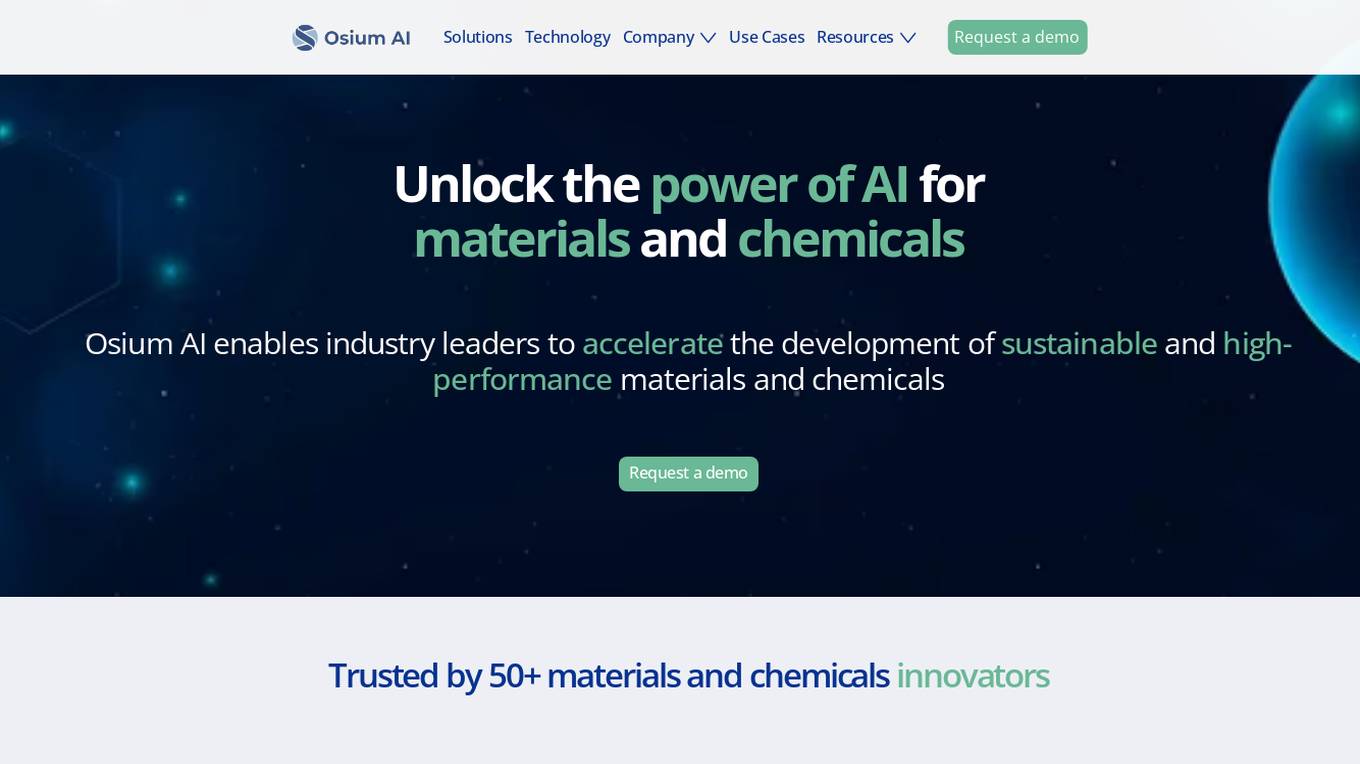
Osium AI
Osium AI is a cutting-edge AI-powered software designed to accelerate the development of sustainable and high-performance materials and chemicals. The platform leverages proprietary technology developed by experts with 10 years of experience in AI and authors of multiple AI patents. Osium AI offers a comprehensive solution that covers every step of materials and chemicals development cycles, from formulation and characterization to scale-up and manufacturing. The software is flexible, adaptable to various R&D projects, and eliminates trial-and-error approaches, unlocking the full potential of R&D with its advanced functionalities.
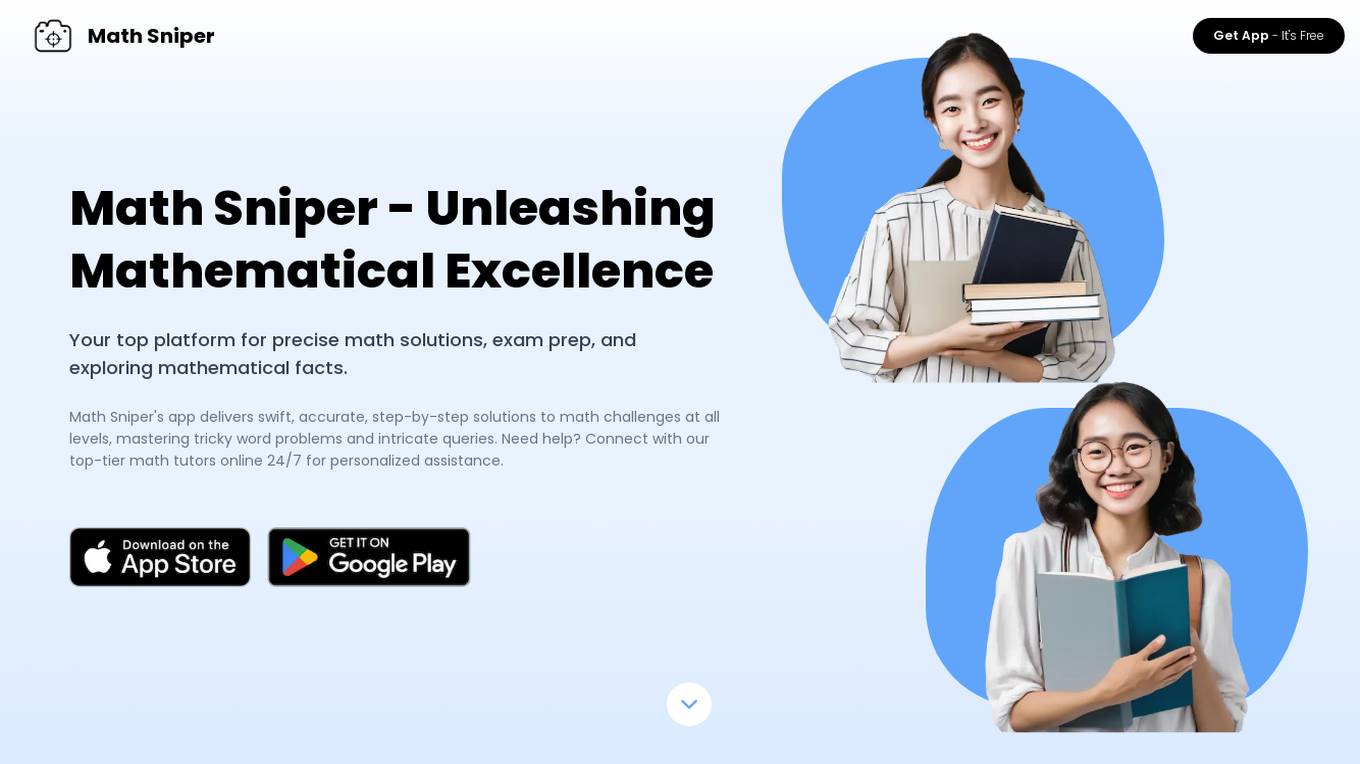
Math Sniper
Math Sniper is an AI-powered application designed to provide precise math solutions, exam preparation assistance, and exploration of mathematical concepts. The app offers step-by-step solutions to math challenges at all levels, connects users with math tutors for personalized help, and covers a wide range of subjects beyond mathematics, such as biology, chemistry, physics, history, economics, and language tasks. With features like Snap & Ask for instant answers, step-by-step explanations, and a user-friendly interface, Math Sniper aims to enhance users' understanding of complex concepts and facilitate learning in various disciplines.
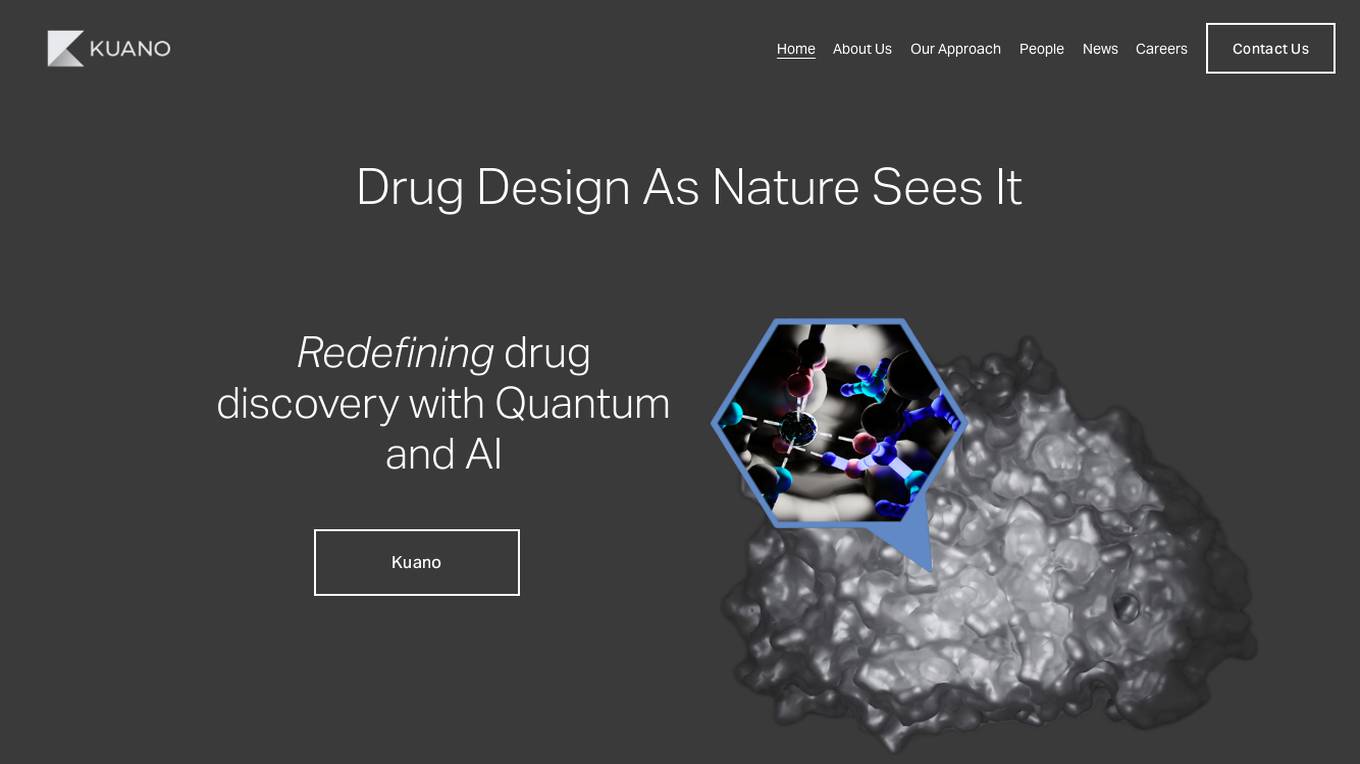
Kuano
Kuano is an AI tool that focuses on redefining drug discovery using Quantum and AI technologies. The platform offers world-class scientific expertise in quantum physics, AI, and medicinal chemistry to revolutionize the drug design process. Kuano aims to leverage cutting-edge technologies to accelerate the discovery of new drugs and improve healthcare outcomes.
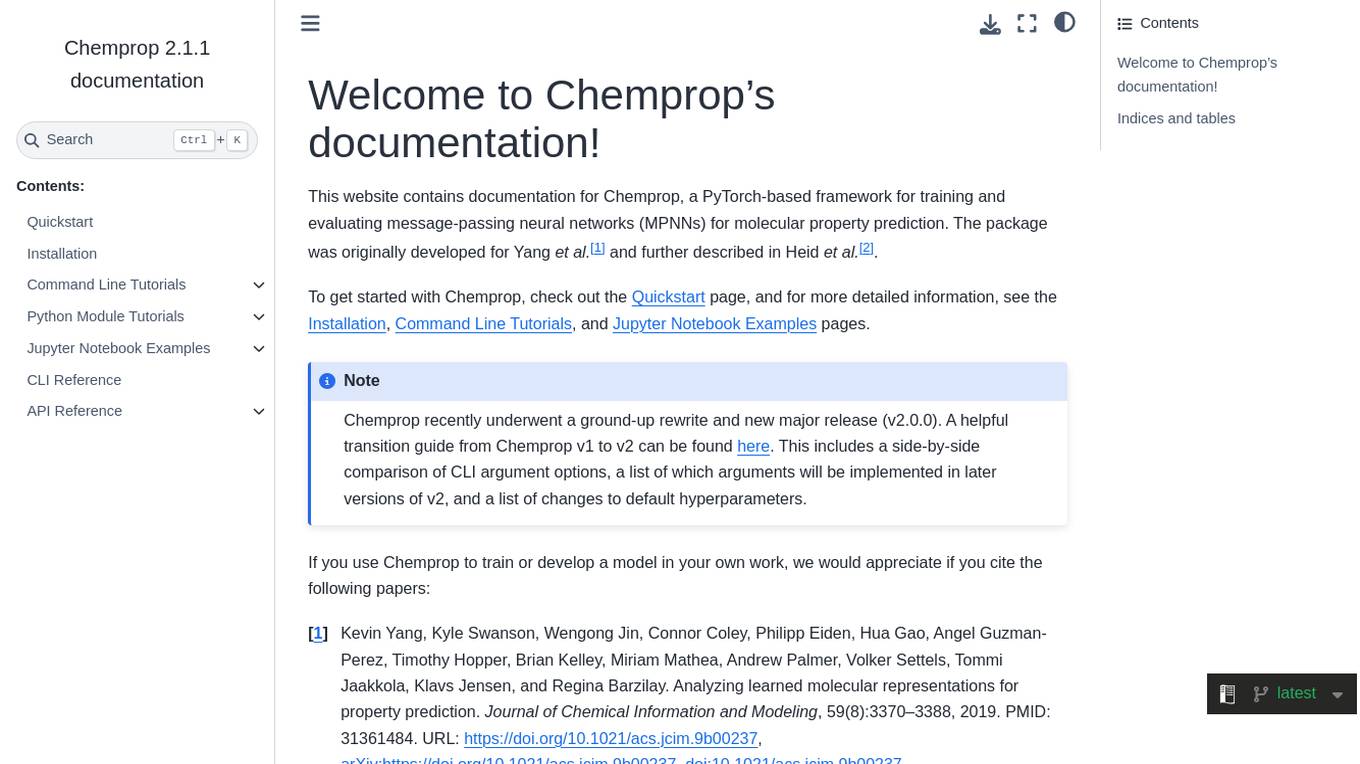
Chemprop
Chemprop is a PyTorch-based framework for training and evaluating message-passing neural networks (MPNNs) for molecular property prediction. Originally developed for research purposes, Chemprop offers a comprehensive set of tools and features for training models and analyzing molecular representations. The package underwent a recent major release (v2.0.0) with significant improvements and updates.
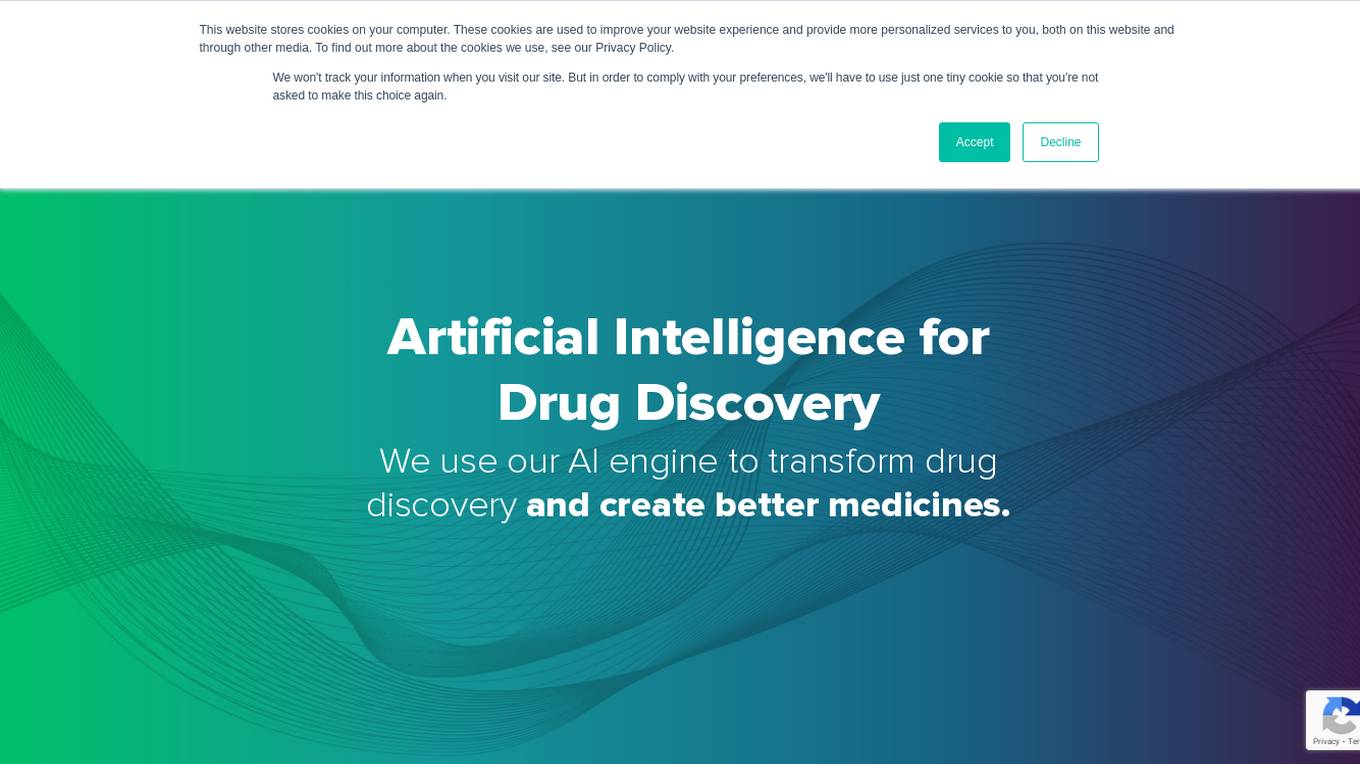
Atomwise
Atomwise is an artificial intelligence (AI)-driven drug discovery company that uses machine learning to discover and develop new small molecule medicines. The company's AI engine combines the power of convolutional neural networks with massive chemical libraries to identify new drug candidates. Atomwise has a wholly owned pipeline of drug discovery programs and also partners with other pharmaceutical companies to co-develop drugs. The company's investors include prominent venture capital firms and pharmaceutical companies.
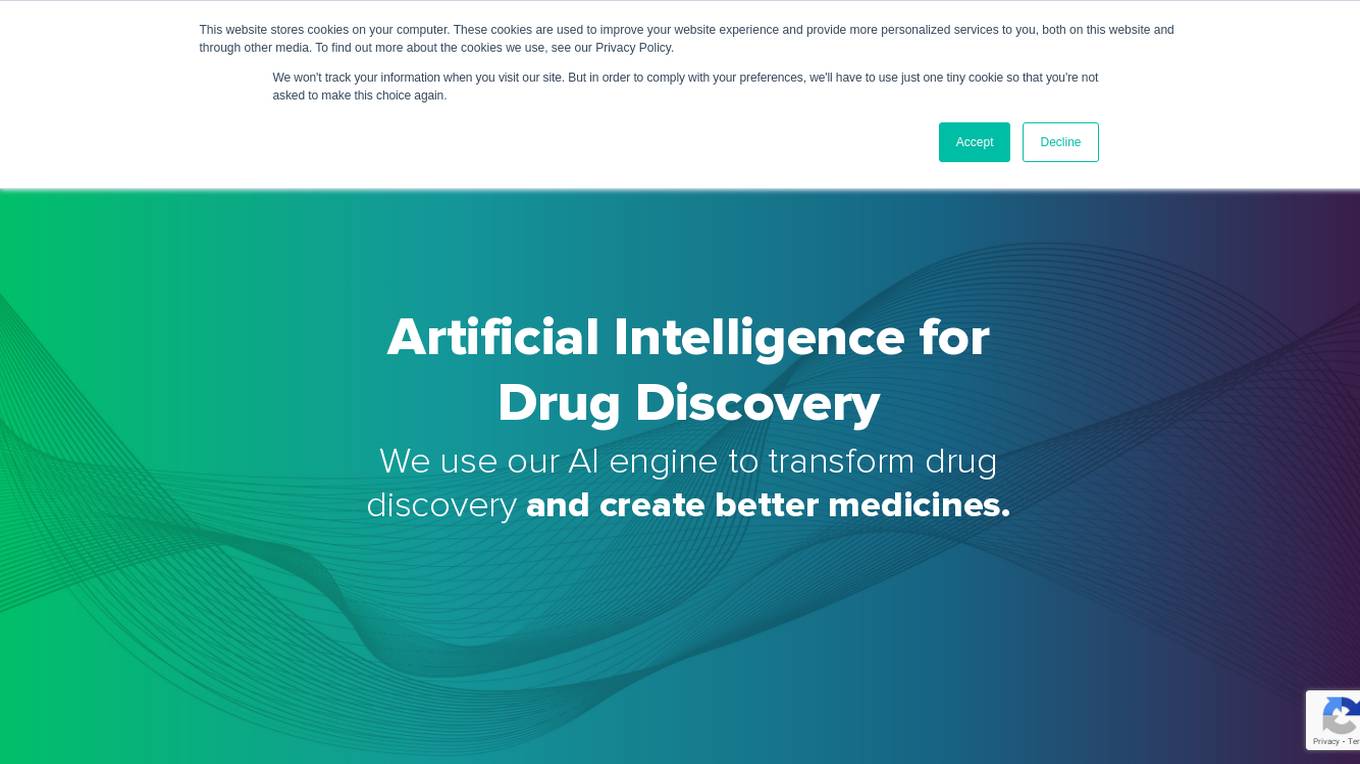
Atomwise
Atomwise is an AI-powered drug discovery company that uses machine learning to identify new small molecule medicines. The company's platform combines the power of convolutional neural networks with massive chemical libraries to discover new drug candidates. Atomwise has a portfolio of wholly owned and co-developed pipeline assets, and is backed by prominent investors.
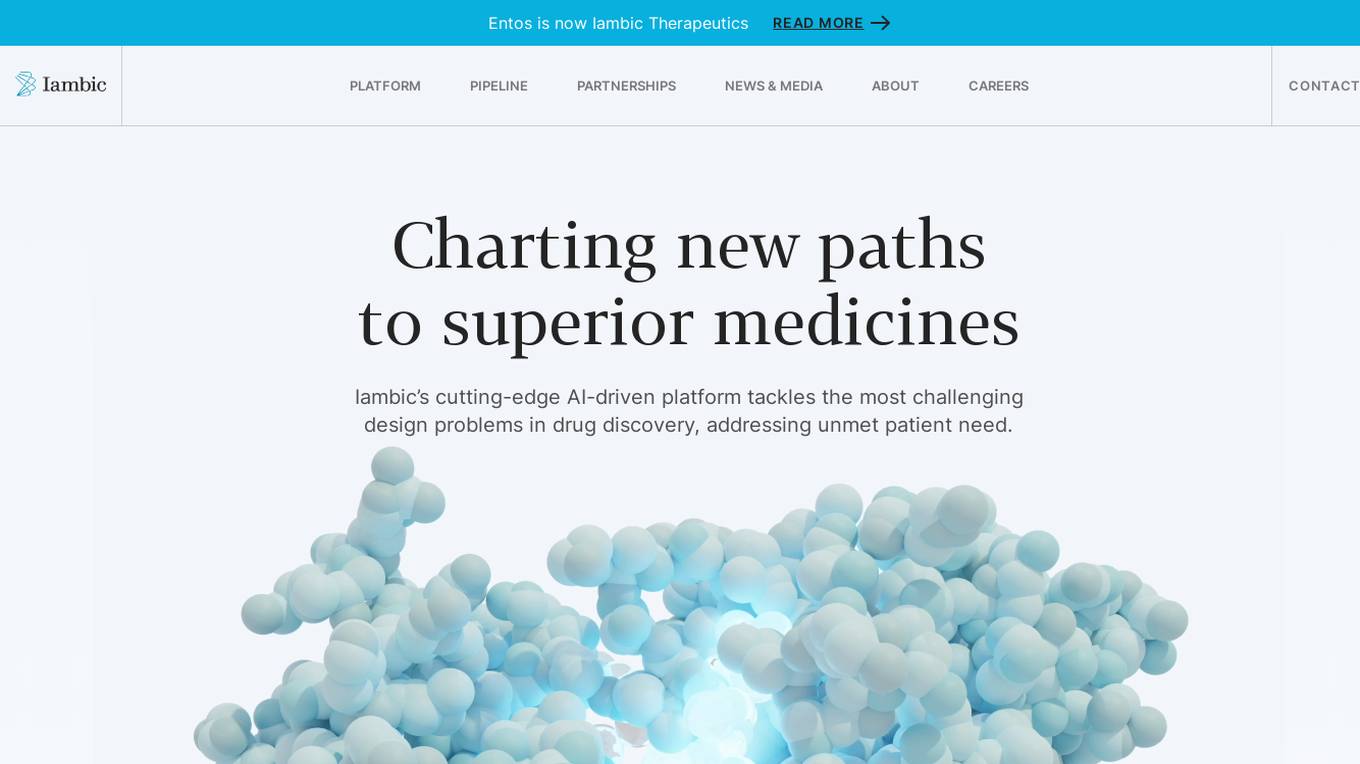
Iambic Therapeutics
Iambic Therapeutics is a cutting-edge AI-driven drug discovery platform that tackles the most challenging design problems in drug discovery, addressing unmet patient need. Its physics-based AI algorithms drive a high-throughput experimental platform, converting new molecular designs to new biological insights each week. Iambic's platform optimizes target product profiles, exploring multiple profiles in parallel to ensure that molecules are designed to solve the right problems in disease biology. It also optimizes drug candidates, deeply exploring chemical space to reveal novel mechanisms of action and deliver diverse high-quality leads.

SpoiledChild
SpoiledChild is a skincare and haircare brand that uses AI to personalize product recommendations for its customers. The company's products are designed to help people look and feel younger, and they are made with high-quality ingredients that are free of harsh chemicals. SpoiledChild offers a wide range of products, including serums, moisturizers, masks, and supplements. The company also has a team of experts who can provide personalized advice on how to use their products. SpoiledChild is committed to sustainability, and they use recycled materials in their packaging and offer a refill program for their products.
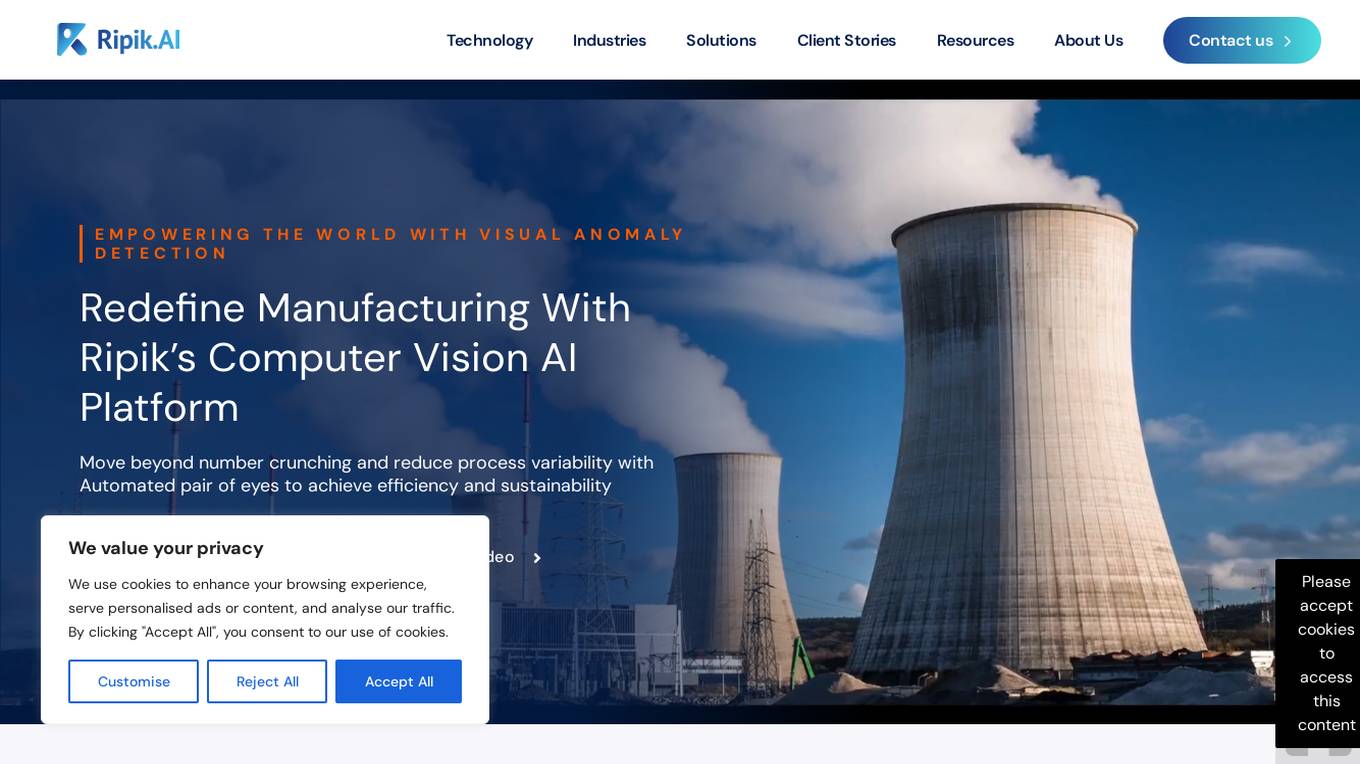
Ripik.ai
Ripik.ai is an applied AI company developing computer vision agents—an automated pair of eyes for industries like steel, cement, and chemicals. These AI-driven agents provide 24/7 monitoring with 95%+ accuracy, enabling real-time decision-making while eliminating human error and inefficiencies. Ripik's Computer Vision AI Platform offers solutions for material, process, and equipment monitoring, driving higher throughput, improved energy efficiency, and enhanced quality, delivering direct and measurable gains across industrial operations.
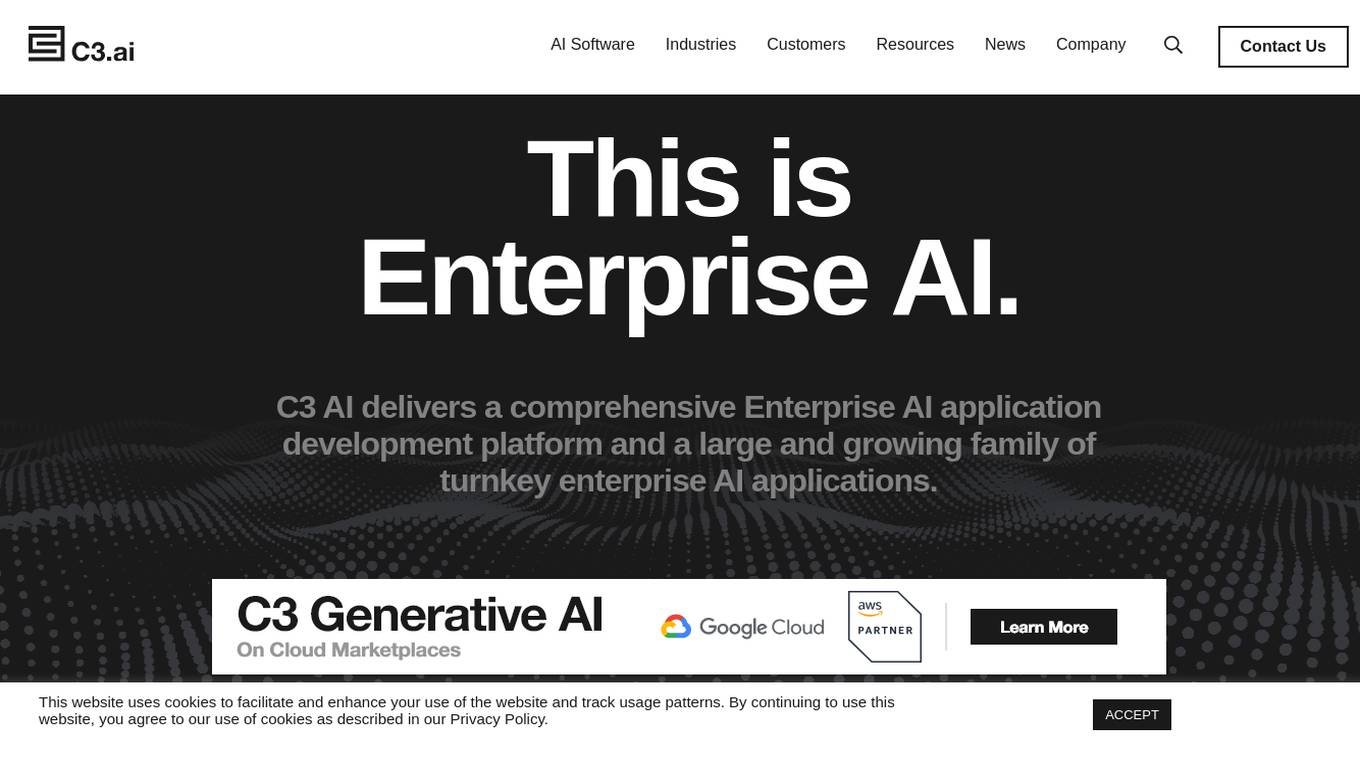
C3 AI
C3 AI provides a comprehensive Enterprise AI application development platform and a large and growing family of turnkey enterprise AI applications. C3 AI's platform provides all necessary software services in one integrated suite to rapidly develop, provision, and operate Enterprise AI applications. C3 AI's applications are designed to meet the business-critical needs of global enterprises in various industries, including manufacturing, financial services, government, utilities, oil and gas, chemicals, agribusiness, defense and intelligence.
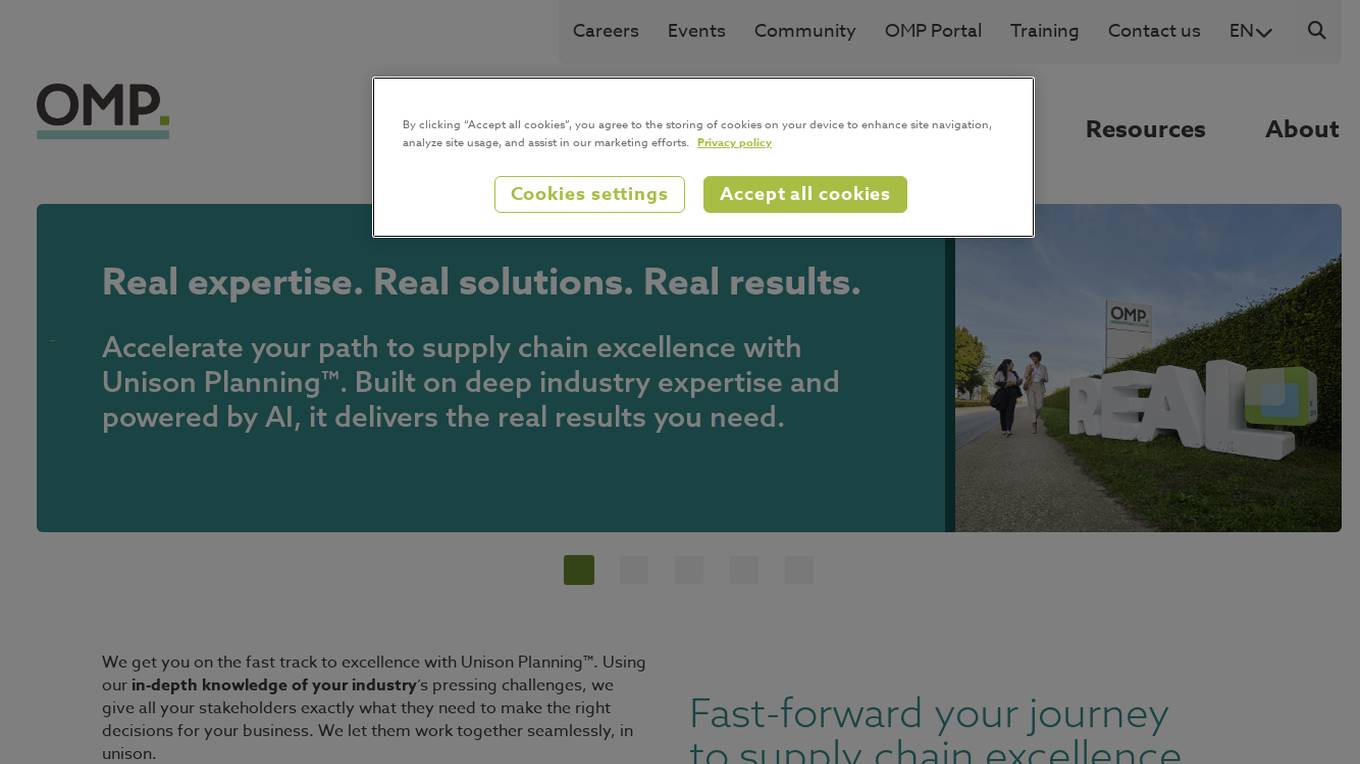
OMP
OMP is a supply chain planning solution that accelerates the path to supply chain excellence. It is built on deep industry expertise and powered by AI to deliver tangible results. OMP provides decision-centric planning platform covering demand and supply planning, from strategic to operational levels, tailored to specific industries like chemicals, consumer goods, life sciences, metals, and paper/plastics/packaging.
0 - Open Source AI Tools
20 - OpenAI Gpts
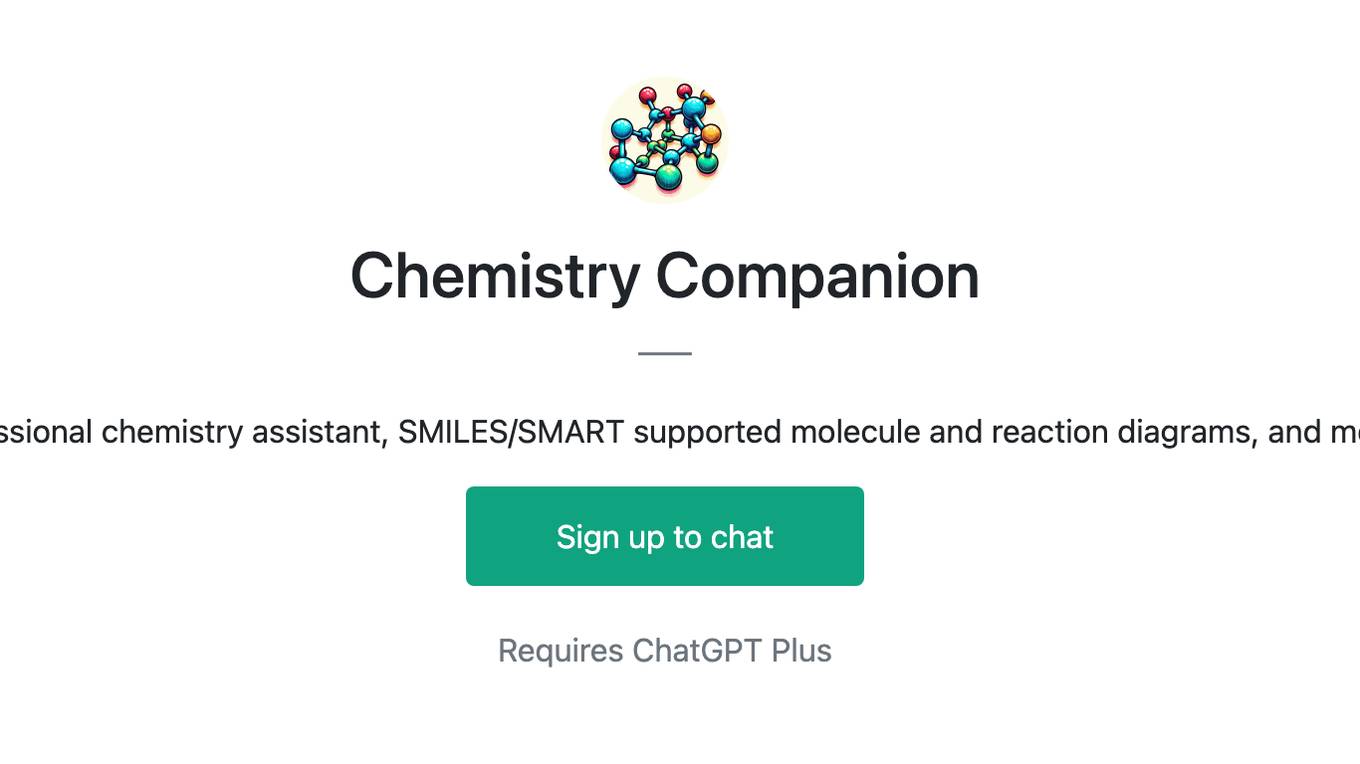
Chemistry Companion
Professional chemistry assistant, SMILES/SMART supported molecule and reaction diagrams, and more!
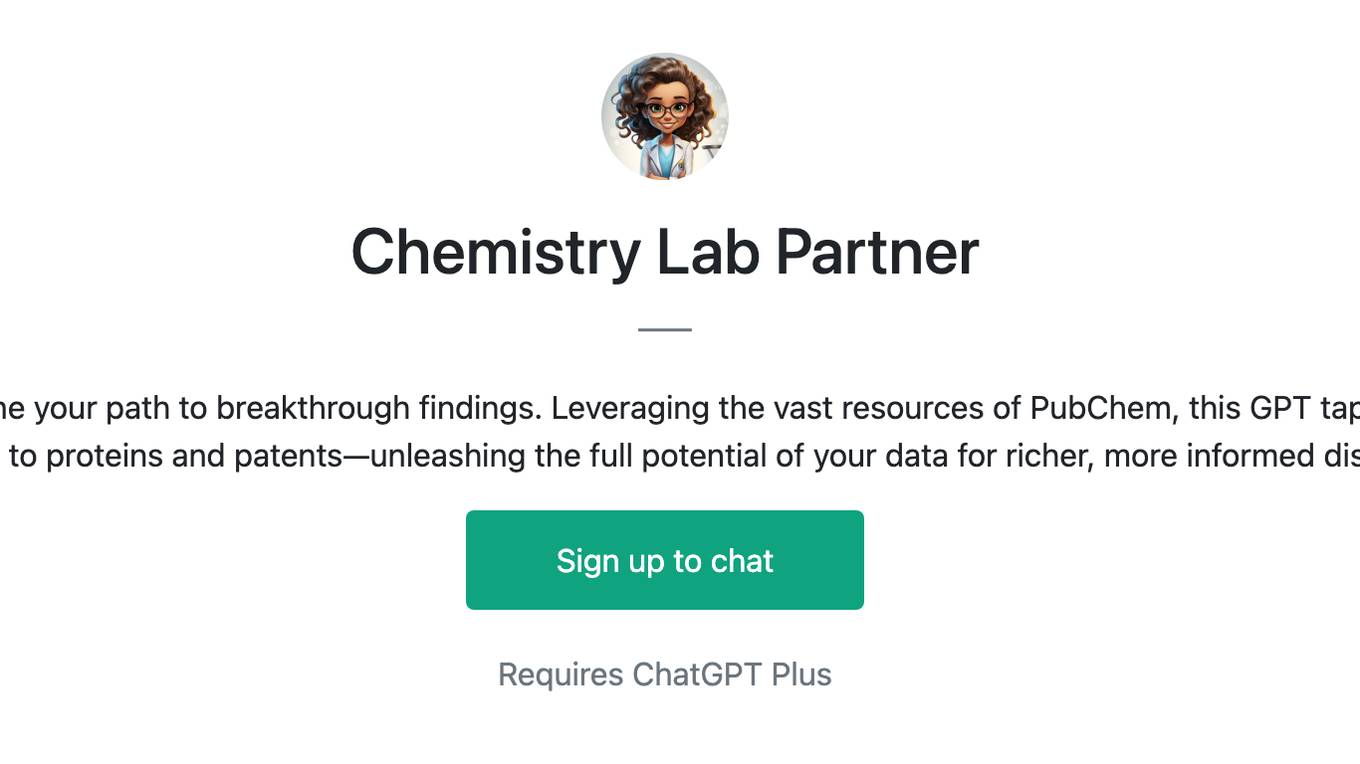
Chemistry Lab Partner
Turbocharge your research and streamline your path to breakthrough findings. Leveraging the vast resources of PubChem, this GPT taps into a wealth of chemical data—from substances to proteins and patents—unleashing the full potential of your data for richer, more informed discoveries.
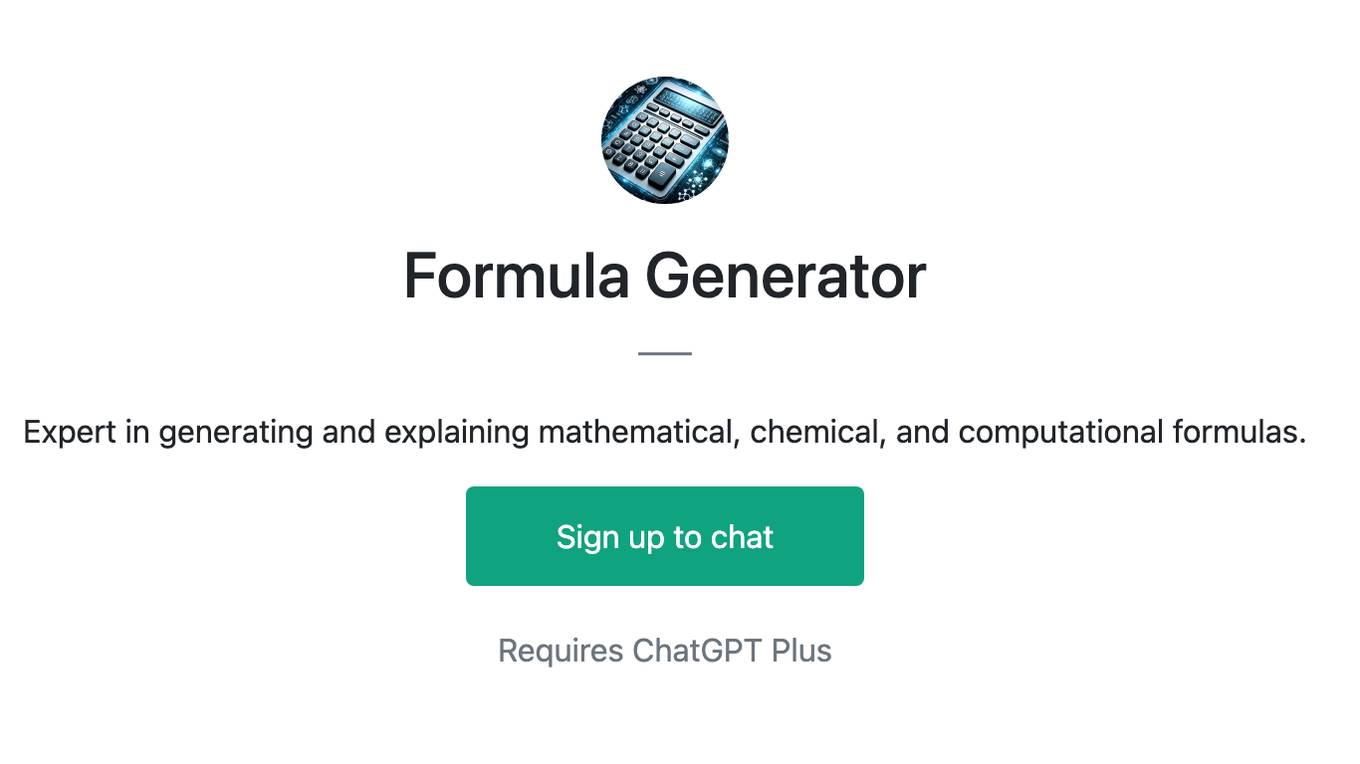
Formula Generator
Expert in generating and explaining mathematical, chemical, and computational formulas.
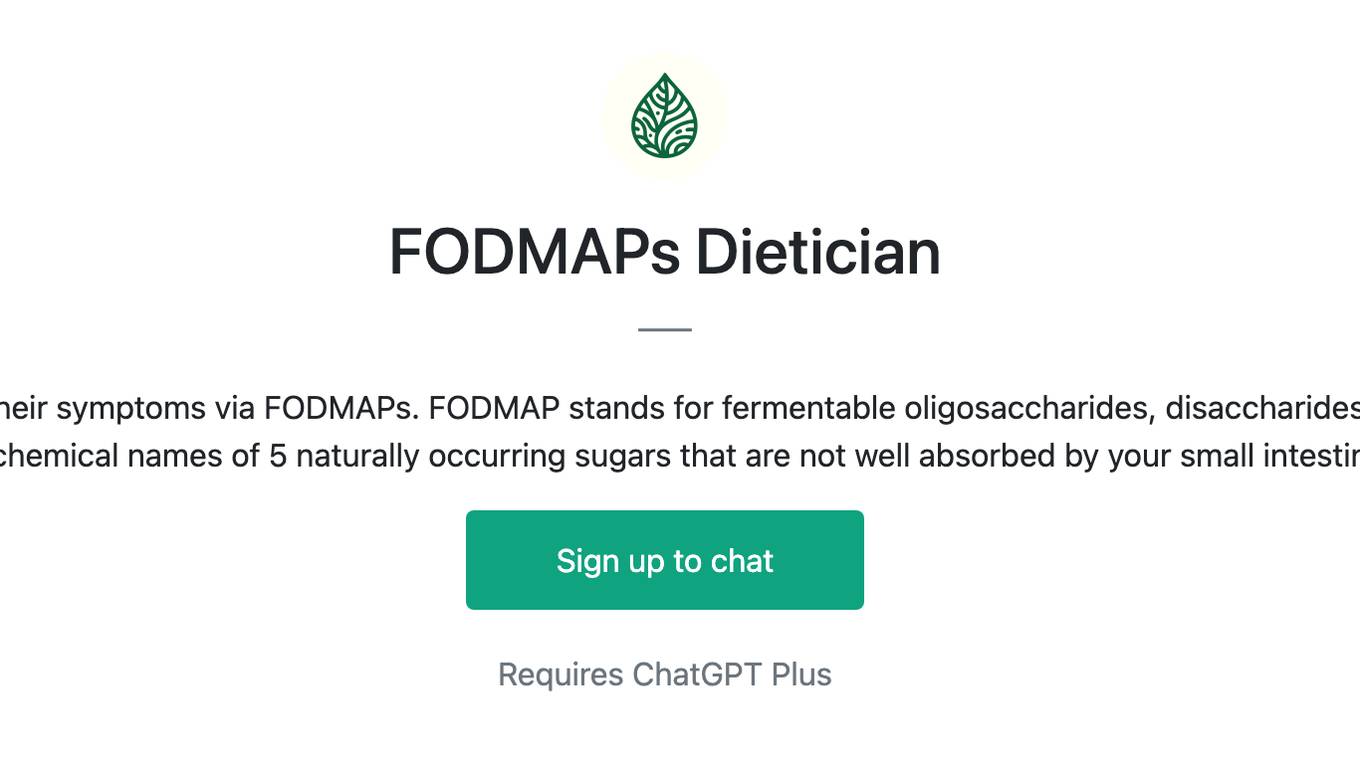
FODMAPs Dietician
Dietician that helps those with IBS manage their symptoms via FODMAPs. FODMAP stands for fermentable oligosaccharides, disaccharides, monosaccharides and polyols. These are the chemical names of 5 naturally occurring sugars that are not well absorbed by your small intestine.
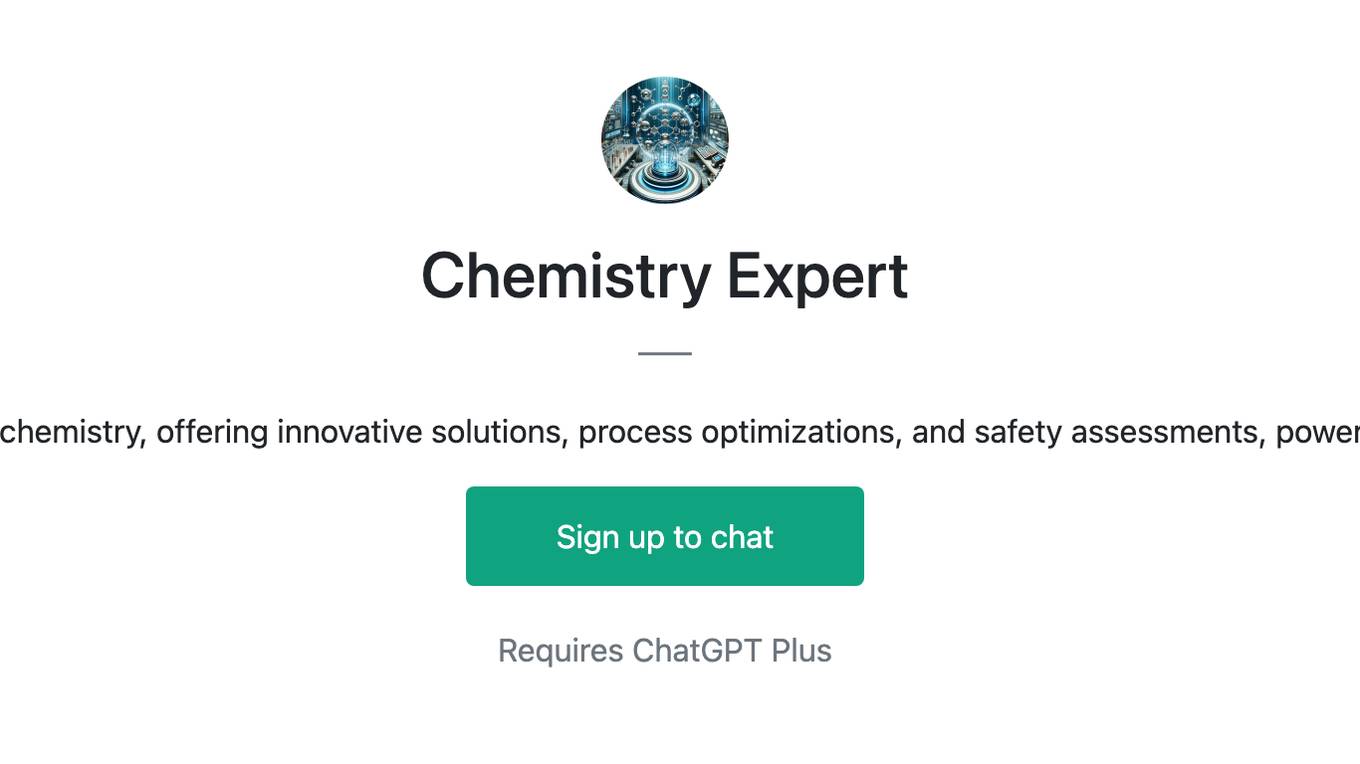
Chemistry Expert
Advanced AI for chemistry, offering innovative solutions, process optimizations, and safety assessments, powered by OpenAI.

Fluid Mechanics Advisor
Guides the implementation of fluid mechanics principles in engineering projects.
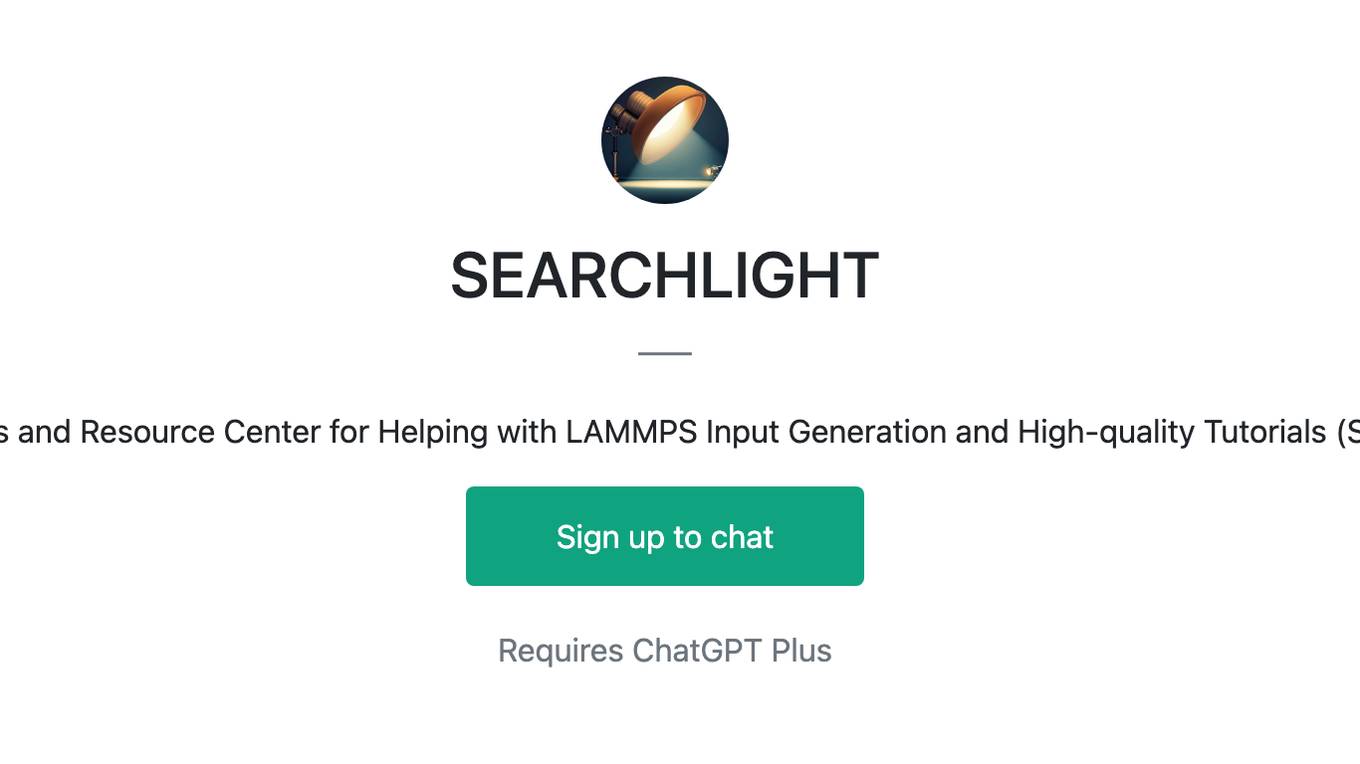
SEARCHLIGHT
Script Examples and Resource Center for Helping with LAMMPS Input Generation and High-quality Tutorials (SERCHLIGHT)
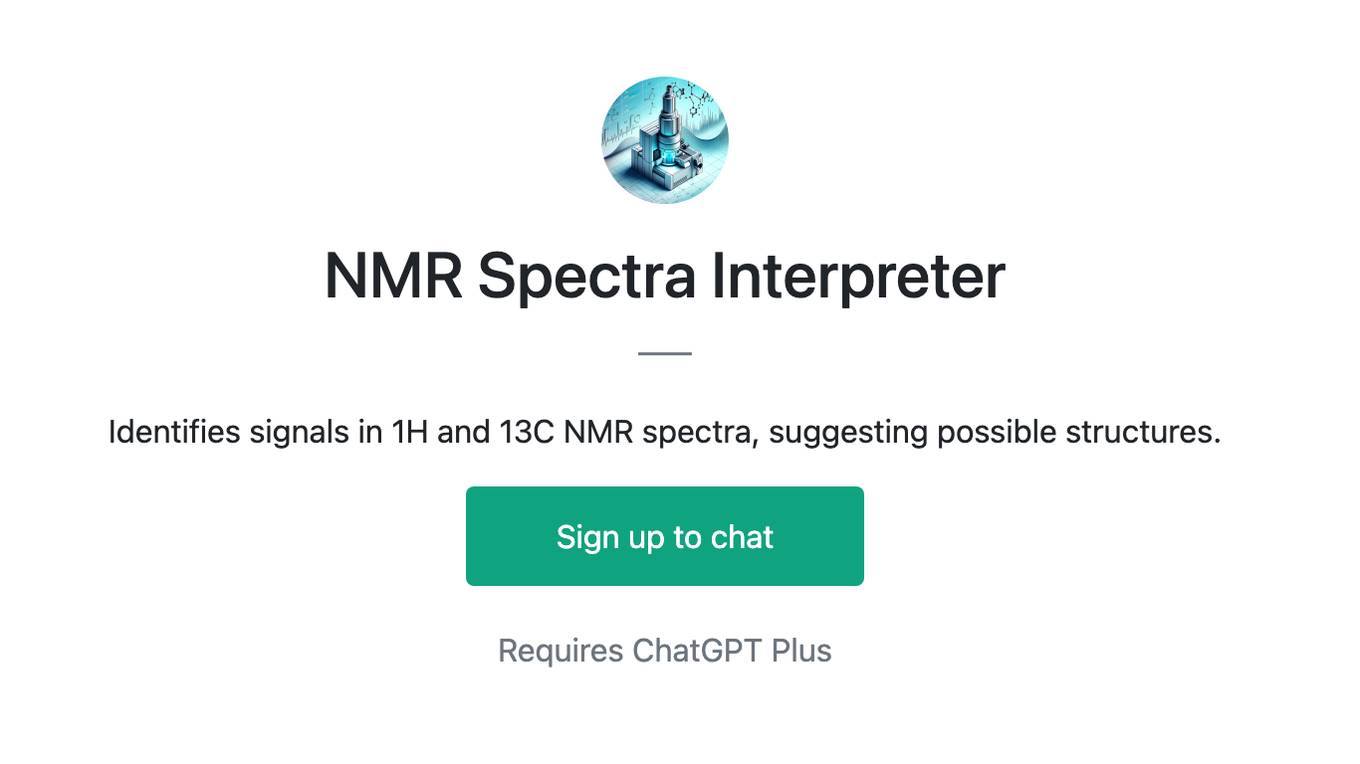
NMR Spectra Interpreter
Identifies signals in 1H and 13C NMR spectra, suggesting possible structures.
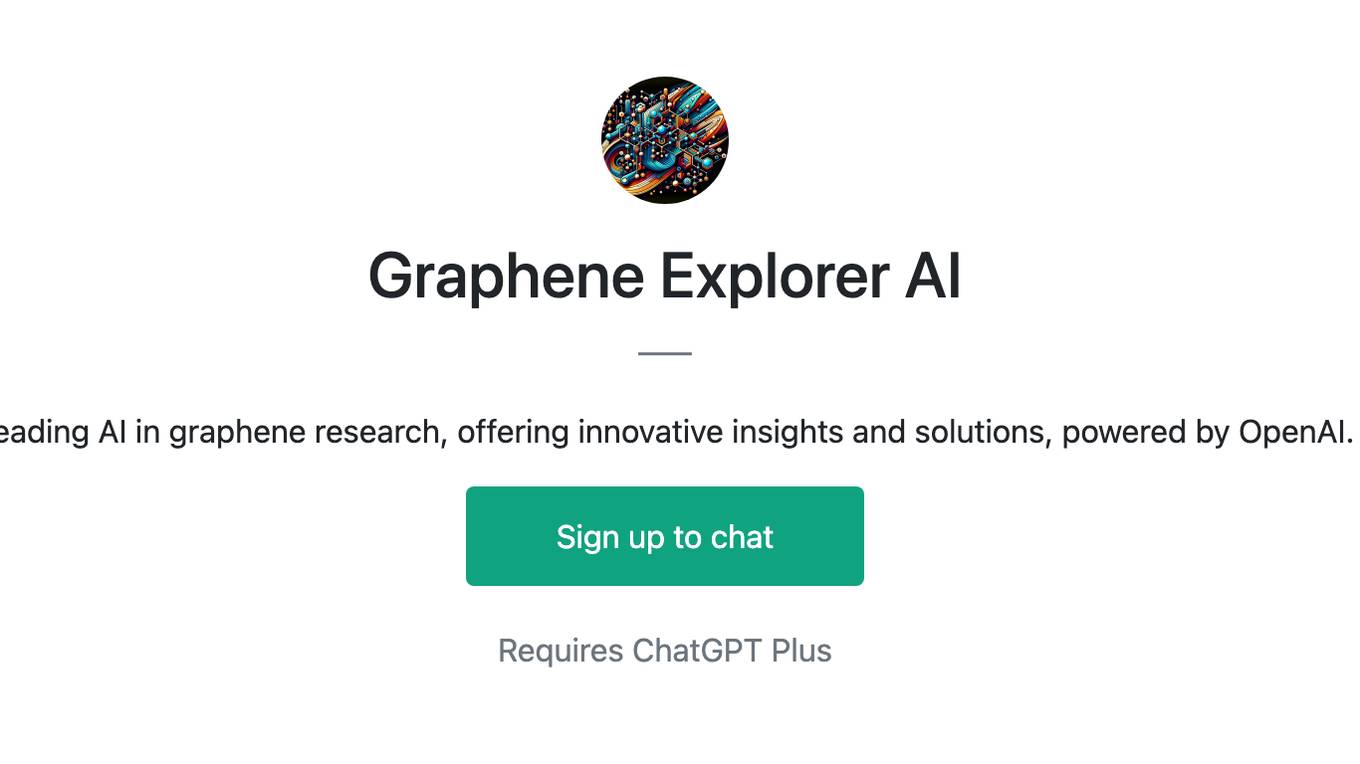
Graphene Explorer AI
Leading AI in graphene research, offering innovative insights and solutions, powered by OpenAI.
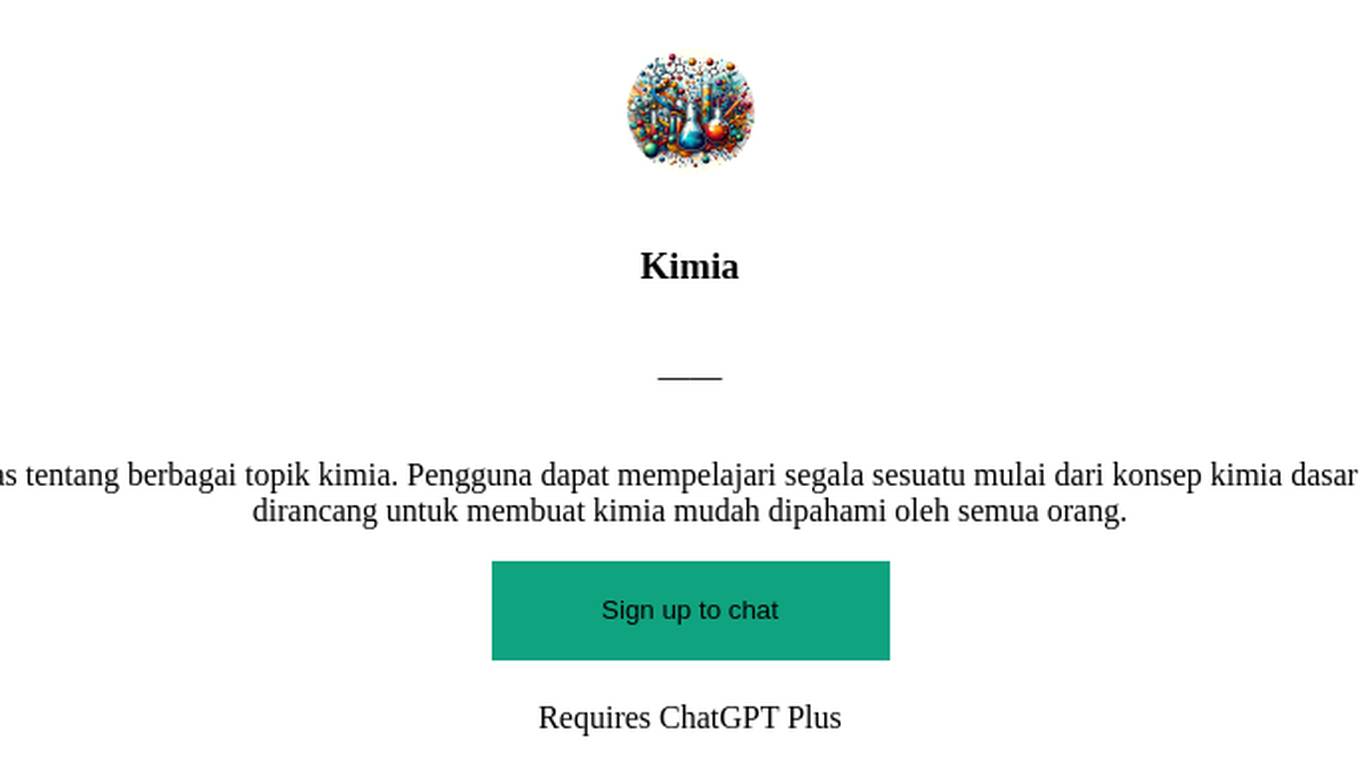
Kimia
Program ini memberikan penjelasan yang jelas tentang berbagai topik kimia. Pengguna dapat mempelajari segala sesuatu mulai dari konsep kimia dasar hingga teori yang lebih kompleks. Program ini dirancang untuk membuat kimia mudah dipahami oleh semua orang.
